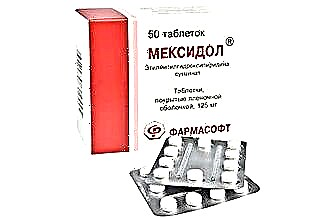Sea salt is a natural antiseptic with pronounced antiphlogistic, decongestant and regenerating properties. The product is rich in minerals and trace elements that take part in biochemical processes. Irrigation of the nasopharynx with saline leads to a regression of catarrhal processes, restoration of the functions of the ciliated epithelium and an increase in tissue reactivity.
 To relieve the symptoms of acute and chronic inflammation in the ENT organs, rinse the nose with sea salt. The proportions of antiseptic and water must be strictly observed. As a rule, concentrated solutions inhibit the function of the glands in the mucous membrane, which can cause it to dry out.
To relieve the symptoms of acute and chronic inflammation in the ENT organs, rinse the nose with sea salt. The proportions of antiseptic and water must be strictly observed. As a rule, concentrated solutions inhibit the function of the glands in the mucous membrane, which can cause it to dry out.
About useful properties
Sea water is one of the safest preparations used for nasopharyngeal irrigation. It contains a large amount of iodine, bromine, magnesium and manganese, which accelerate cellular metabolism and increase local immunity. The antiseptic solution has the following spectrum of action:
- destroys pathogens;
- relieves puffiness;
- accelerates the regression of inflammation;
- increases cellular turgor;
- clears pus from the paranasal sinuses;
- stimulates cellular immunity;
- promotes the regeneration of the mucous membrane;
- increases the elasticity of blood vessels;
- normalizes the functioning of the glands in the mucous membrane.
Sea water has practically no contraindications for use, which is due to the absence of preservatives and synthetic impurities in the composition. In addition, isotonic solutions with a very low concentration of salts are also found in blood plasma. They contribute to the maintenance of normal osmotic pressure in the blood, which contributes to its normal circulation through the bloodstream.
Operating principle
How to dilute sea nasal salt? For the treatment of inflammation in the nasopharyngeal mucosa, it is desirable to use concentrated sea water, which can be classified as hypertonic solutions. A hypertonic solution is a liquid, the osmotic pressure of which is significantly higher than in blood plasma and intercellular fluid. For this reason, the natural sorbent helps to “pull out” pathogens, excess fluid and purulent masses from tissues.
During the lavage, the less concentrated liquid in the nasopharynx "tries" to balance the concentration of salts in the seawater. This causes the intercellular fluid molecules to migrate into the saline solution. Thus, it is possible to eliminate puffiness and pathogens in the nasal mucosa.
It is impossible to use hypotonic solutions for the treatment of rhinitis. This will lead to the migration of water molecules from the solution into the mucous membrane, which will provoke an increase in puffiness.
Preparation
For the treatment of colds, you can use only pure, not cosmetic sea salt. It should not contain fragrances, dyes and essential oil substances. Their presence in water can provoke adverse reactions during nasopharyngeal irrigation. How to dilute sea salt for rinsing the nose?
- the product is mixed with boiled or mineral (still) water;
- the solution must be filtered to prevent the penetration of crystals not dissolved in water into the nasopharynx;
- the temperature of the finished product should not exceed 38 degrees.
To enhance the antiseptic properties of sea water, add 1-2 drops of iodine to the preparation.
To accelerate the dissolution of crystals, a finely ground product is used for therapeutic purposes. Salt is poured with hot water at a temperature of about 70-80 degrees.
Proportions
How to dilute sea salt for nasal rinsing? The concentration of the drug is largely determined by the purpose of its use. For the prevention of colds, weakly concentrated solutions are used, with the help of which the number of opportunistic microorganisms in the nasal mucosa is controlled. To eliminate the clinical manifestations of acute rhinitis, sinusitis or sinusitis, it is necessary to use highly concentrated sea water.
In the process of preparing the drug, the following proportions must be observed:
- for the prevention of rhinitis: 5 g of salt per 500 ml of water;
- for the treatment of rhinitis: 10 g of salt per 250 ml of water;
- for the treatment of sinusitis (sinusitis): 15 g of salt per 300 ml of water;
- for the treatment of rhinitis in children: 3 g of salt per 250 ml of water.
Important! In case of hypersensitivity, the amount of salt should be reduced by at least 2 times.
Most preschool children are hypersensitive to the effects of any medication. To exclude the possibility of side reactions, it is advisable to use weakly concentrated sea water for irrigation of the nasal cavity.
Treatment of pregnant women
In the first 6-7 weeks of gestation, women are strongly discouraged from using synthetic medications for the treatment of infectious and inflammatory processes in the ENT organs. However, it is precisely in diseases. Untimely relief of inflammation is dangerous not only for the expectant mother, but also for the fetus.
To eliminate the clinical manifestations of the common cold, in particular rhinitis, you can use salt water. It absorbs excess moisture, pathogens and toxic substances well, which contributes to the regression of inflammation. This, in turn, leads to a decrease in edema in the ciliated epithelium, thereby facilitating nasal breathing.
How to dilute sea salt for nasal wash during pregnancy? To reduce the likelihood of irritation of the mucous membrane in the nasopharynx, you need to dissolve 1 tsp. salt in 300 ml of hot water. The prepared solution should be used to rinse the nasal passages at least three times a day for a week.
After the procedure, it is necessary to blow out all the accumulated mucus through the nose. In this way, the penetration of pathogens into the throat and gastrointestinal tract can be prevented.



